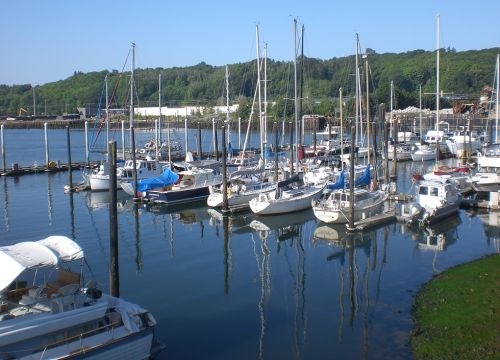Safe Boating and Prevention of Small Oil Spills

What does wearing a life jacket have in common with preventing oil spills? Wearing life jackets can save people’s lives; preventing small oil spills helps protect marine life.
National Safe Boating Week occurs annually in May, and as part of the campaign, the National Safe Boating Council, in partnership with the U.S. Coast Guard, encourages people to wear life jackets to work. The Coast Guard estimates that over 80 percent of the lives lost to drowning could have been preventing by wearing life jackets.
In addition to protecting themselves and their passengers, recreational boaters and other small vessel operators can help protect marine life with a few simple precautions aimed at preventing oil from getting into the water. Though each one is small in volume, oil spills from small vessels add up. In Washington State, when you multiply this volume by the thousands of fishing and recreational boats on the water, they make up the largest source of oil pollution in Puget Sound, according to Washington Sea Grant. “Small oils spills, whether a cup, a gallon or just a few drops, add up to a huge water quality problem; it is death by a thousand tiny cuts. Over time, it all adds up,” said Aaron Barnett, boating specialist at Washington Sea Grant.
Small Spills Prevention Checklist
It’s not difficult to prevent small-vessel oil spills, Washington Sea Grant has put together a checklist for simple maintenance and fueling tips.
Vessel maintenance
- Tighten bolts on your engine to prevent oil leaks. Bolts can shake loose with engine use.
- Replace cracked or worn hydraulic lines and fittings before they fail. Lines can wear out from sun and heat exposure or abrasion.
- Outfit your engine with an oil tray or drip pan. You don’t need anything fancy or expensive; a cookie sheet or paint tray will do the trick.
- Create your own bilge sock out of oil absorbent pads to prevent oily water discharge.
At the pump
- Avoid overflows while refueling by knowing the capacity of your tank and leaving some room for fuel expansion.
- Shut off your bilge pump while refueling – don’t forget to turn it back on when done.
- Use an absorbent pad or a fuel collar to catch drips. Always keep a stash handy.
Visit the Washington Sea Grant Small Spills Prevention Program for additional knowledge and tools to stop oil pollution at the source.
Even following these tips, accidents can still happen. When they do, it’s important that boaters manage them effectively. Spills should immediately be contained and cleaned up with absorbent pads or boomed to prevent their spread. Notify the Coast Guard and your state spill response office, per federal law, and let the marina or fuel dock staff know about the incident, so they can assist. To report an oil spill, call the U.S. Coast Guard National Response Center at 800-424-8802.
 An official website of the United States government.
An official website of the United States government. 